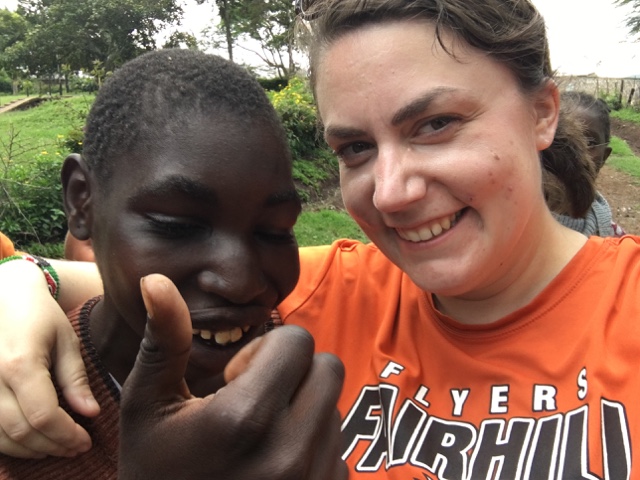"There are sometimes the store room is empty and we're not sure where the children's next meal will come from, but in all these years, they've never gone to bed hungry."
This was said to me by one of the directors of the Tania Centre within the first two weeks of my arrival. It was said so matter-of-factly. My mind immediately went to the story of
George Müller, who ran an orphanage in 19th-century England without ever asking another person for donations. When they were in need of food, they would pray. When they were in need of clothes, they would pray. One story tells how the children were sat around the table and Müller prayed, thanking God for the breakfast they were about to eat, when they had not one scrap of food in the house. As soon as he finished praying, the local baker showed up with a donation, and a milk cart broke down outside the orphanage and had to offload its milk there to repair the cart.
I see the same sort of faith in the leaders here at the Tania Centre. Last week, our store room was empty. Aside from vegetables from the farm, the directors were not sure where the children's dinner would come from. So we prayed. Later that day, a local grocery store owner gave Tania two sacks of rice on credit, and our children had food.
Then, just to make sure we remember it is God who provides, he sent a donation later in the week from a school in Nairobi and a church in California. Our store room is now overflowing!
Also last week, one of the directors, Jennifer, was talking to me about how she hoped that some of the local families who take in children from Tania for the holidays might consider sponsoring those children's school fees. We prayed about it. Later that day, before Jennifer even asked, one local woman who takes in two of our boys for the holidays called up Jennifer and said she'd like to pay their school fees.

For some mysterious reason, God chooses to work through prayer. The creator of the horsefly and the Horse Head Nebula chooses to listen when we speak to him, and delights in answering us. I'm not sure why I see prayer answered more often and more rapidly here in Kenya than I did back home in the U.S., but I have a few suspicions: in the U.S., we've made ourselves so great that we have no need of God. We pride ourselves on our self-sufficiency and see dependence as weakness. We don't
see miracles because we don't
need miracles, and have no faith that they can happen. If we can work hard and solve all of our problems ourselves, why should we bother asking God to help solve them? The same thing happened in
Jesus' hometown when he visited there. But when your store room is empty and it's not in your power to refill it, God has the opportunity to show up in a big way when you ask him to. And I think the more audacious the request, the more God loves answering it, because what faith it takes to ask God for something impossible! God loves when we dream big because he gets the glory.
Some of the projects we'd like to accomplish here at the Tania Centre are huge. There are so many more people out there more qualified than me to do parts of this work. I've spent the last seven years teaching elementary orchestra in one of the most affluent counties in America, who am I to help a small, private school in rural Kenya raise funds and find grants and care for children who have no one else to care for them?
I am no one, but prayer means I don't need to be someone special. I see things happening here on a daily basis that have no business happening, but we pray, and they happen. The children are cared for, needs are met, bellies are full. God loves these children so much.
I don't know how many of these dreams God will make happen, but I believe it takes faith to verbalize your dreams, so I'm verbalizing here a few of our dreams at Tania, with the faith that God will make them happen:
--We're dreaming of turning Tania into a Montessori school, which will make us more marketable to parents who can pay school fees.
--We're dreaming of turning Bruce Park into a retreat center, with a guest house and conference area and places to relax and play. We'd like to employ some of our students with special needs once they finish school, since they might have trouble finding understanding employers. We want to use the profits from the retreat center to support Tania.
--We're dreaming of expanding our farm to include more cows and chickens, to produce enough biofuel to fuel our kitchens and our van, and to produce enough milk and eggs for our children.
--We're dreaming of the day that Tania is so blessed that it may become a blessing to the surrounding community, county, country, and world.
I promise you that any progress made over the next three years will not be a result of my talent, skills, bravery, perseverance, or any other positive quality you might want to pin on me. I am severely lacking in all of those categories. Any progress you see here at Tania will be a result of the prayers we're praying and the people God will use to answer those prayers.








